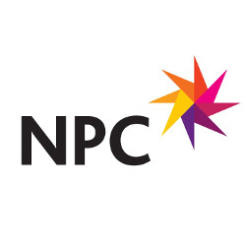The public are likely to perceive charities as large, national bodies, not involved in political issues and mainly funded by donations, according to a report published today by think tank NPC.
The report, titled Matter of Trust: What the public thinks of charities and how it affects trust, is based on a survey of 1,009 adults conducted earlier this month.
It says that 35 per cent of people have low trust in charity, and that people are less likely to trust charities if they are large, government-funded, involved in political issues, run by professional staff or involved in awareness raising rather than service delivery.
The report says that 77 per cent of people see charities as either national or international organisations when asked what words came to mind when they think about the sector. This compared to 15 per cent who mostly associate charities with local bodies, and 8 per cent who said they did not know.
The report found 67 per cent of the public perceive charities mostly as large organisations, 67 per cent perceive them as ‘not involved in political issues', and only 12 per cent think of charities as relying on funding from government and business.
Some 41 per cent of respondents associate charities with being run by professionals, as opposed to 51 per cent who saw charities as being volunteer-run.
“More work is needed to compare these perceptions to reality," the report said. "While the vast majority of people (67 per cent) mostly think about large organisations when they think of charity, the reality is that only 16 per cent of charities are in fact large, with an income of more than £100,000.”
In particular, the survey shows that the public has a greater distrust of charities that receive funding from the government and businesses, those with a political agenda, those run by professionals, international charities and those whose focus was on raising awareness of issues.
“The most mistrusting people are those who think that charities tend to get most of their money from government/business (55 per cent give charities a low trust rating) and those who think charities are more political (47 per cent),” the report said.
“Criticism of charities is also slightly higher amongst those who think they are run by professionals (41 per cent) and focused on raising awareness (40 per cent) rather than service delivery.
"Higher levels of trust are found amongst people who mostly associate charities with apolitical, small organisations that use public donations and focus on providing services to people.”
Knowledge of the sector
Members of the public are more likely to trust charities if they have a greater knowledge of the sector, the report said.
“High levels of self-reported awareness of charities are found amongst employees and volunteers, service users, those whose friends or family are involved and those who have seen information about charities. On the other hand, those who have had no contact with charities are much less likely to feel they know a lot about them.”
The report found 31 per cent of people who feel they have a greater knowledge about charities reported a high level of trust, compared to just 17 per cent of those who know not very much or less.
Dan Corry, chief executive of NPC, said: “Billions of pounds flow to UK charities every year, and many of them do fantastic work. But charities depend on the public for funding, volunteers and goodwill, so it is crucial that we understand how people view their work.
"Public trust is likely influenced by recent high-profile controversies around pay and campaigning, and charities haven’t yet come up with a convincing response.
“The prevailing image to emerge from the polling is of more distrust for organisations seen to be large, professional and politicised—and the biggest challenge is for charities who most resemble this image.
"Charities need to address public concerns in a transparent, robust way. Where charities do terrific work, and can prove the positive impact they have on the lives of people who depend on them, they should be shouting this from the rooftops, starting now.”









